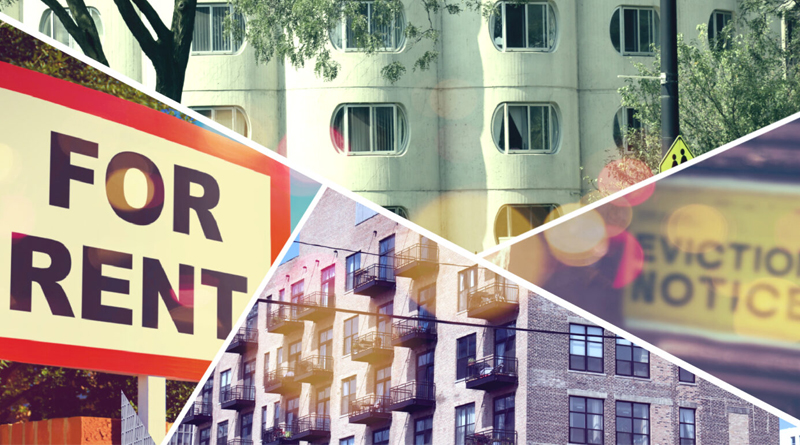In spite of the Financial impact of COVID-19, You Do Not Have To Lose Your Home
The current executive order preventing evictions and mortgage foreclosures in Florida states that people are allowed to stay in their homes, even when they are not able to pay for their monthly rental or mortgage payments.
By: Edda Pujadas
Even when today a lot of homeowners or renters are experiencing important financial burden due to COVID-19 and are having a hard time trying to pay their monthly fees, the reality is that no one has to lose their house because of this pandemic.
This is what Fannie Mae (Federal Mortgage National Association) assures when they explain that if you are experiencing any burden such as loss of employment, a reduction in income or illness due to COVID-19, and you are now not in the position to make your monthly mortgage payments, the insurer of your loan can help you with mortgage assistance options.
The payment relief program works through a reduction or suspension of the mortgage payments of up to 12 months. At the end of this period, it is not necessary for all the payments to be reimbursed in one exhibit, but the option exists. You can also establish a payment plan in order to reimburse the whole amount in installments or work out a mortgage modification which can assist you in getting affordable payments.
These mortgage assistance programs are based on the CARES Act signed on March 20th, 2020. The CARES Act provides homeowners the right to pause their mortgage payments for a period of time, without the danger of losing their homes.
At the closing of this edition of the Doral Family Journal, the temporary ban on mortgage evictions in Florida had been extended until August 1st, 2020 according to Governor Ron DeSantis’ Executive Order. This provides protection to both homeowners and the people that rent homes.
During the time that this eviction moratorium is in effect, neither the mortgage administrator nor your landlord can charge you with late fees, fines, or any other charge for paying late your rent. It is important to take into consideration that this eviction moratorium does not relieve you from your obligation to pay for your mortgage or lease agreement, it simply allows you to pay later without the risk of losing your home.

It is also important to know that your credit score should not be affected by this delay in your payment. To be clear, if you were up to date with your mortgage payments before you had any trouble due to COVID 19, this delay will not be reported to any of the credit bureaus, as long as you sign for any payment plan once this moratorium period is over.
It is very important to understand that if you can’t make your mortgage payment, the first thing to do is to reach out to your mortgage company. The contact information that you need is on your statement of account. When you call them, you need to have your financial information handy; remember to have patience as there are many people in your same situation, trying to get hold of their companies due to COVID-19.
It is also important to remember that when you get your monthly payments to stop for a predetermined period, this does not eliminate your debt. If at the end of this period, you can’t pay all these payments in one single exhibit, and according to what Fannie Mae explained us, you will have the opportunity to work out a payment plan that will allow you to cancel all your pending payments during an extended period.
Obviously, the best thing to do would be to be able to reestablish your mortgage as it was before the pandemic. This means that if you have the financial ability to make a lump sum payment for the past due payments immediately, you can then resume with the original terms for your mortgage. But a payment plan will allow you to distribute those lost due payments along a different period of time.
You will be able to make monthly payments for your special payment plan plus the normal monthly payments for your mortgage. Through this solution, those lost due payments are added without interests to your account for a predetermined period that has already been arranged with your mortgage lender and until the debt balance is offset.
A mortgage modification is another type of mortgage assistance if you have experienced a permanent impact in your capacity to pay for your monthly mortgage. After you have made several monthly payments under a trial payment period plan, your mortgage monthly payment will be permanently modified to a lower amount through a reduction in the mortgage interest rate and for a longer period, up to 40 years (480 payments) from the time in which the modification took place.
When you extend the time to pay for your mortgage, the monthly payment can get a reduction, but you can end up paying more in total interests because of the same situation, you now have a longer period. The ideal situation is for you to analyze all your individual options with your mortgage company in order to determine which is the one that better suits your financial reality.
In the middle of these mortgage payment assistance horizon, it is notable that there are also big benefits for those that want to buy a new home at this time as interest rates keep decreasing; they are now in a historic low for the third week in a row.
The buyer demand is strong and the main reason is that the average interest rate for a 30 years mortgage is 3.03%. This is information from Freddie Mac, who also stated that this is the lowest rate since 1971. The interest rate for a 15 years mortgage is now 2.51%.
This low-interest rate is making homes more affordable because those potential buyers are now coming back to the market. According to the National Association of Realtors, the sales of homes increased by 44.3% in May and the tendency is still growing.
AND FOR THOSE THAT PAY RENT?
The best option for renters during the mortgage moratorium is to keep on paying their rent if they can. If you have problems paying your rent or you can’t pay anymore, then please get in touch with your landlord immediately to start analyzing your options. During these stressful financial times, the owner of the house that you are renting might also be experimenting economic debacles.
Try to get in touch with your landlord in a clear and calm way. Be sincere about your situation, mention all recourses that come to your mind and any assistance option that you might have found, explain how your family would be affected should you lose the tenancy of the home, negotiate any payment plan and keep open the conversation, by email, text or phone. If you get to speak to them via phone or in person, take notes of the main points and the dates.
It is also important to be cautious. In the middle of this pandemic, there are still frauds and scams. Stay informed, establish a good communication with your mortgage provider or landlord about this subject and avoid giving any information without having verified beforehand the identity of the person calling you. If you believe that you might have been a victim of a scam, you can get in touch with the Office of the Inspector General at the Federal Housing Finance Agency at 800.793.7724 or visit the following website: http://www.fhfaoig.gov/.
All homeowners and/or tenants can and should get more information about this subject in the page that Fannie Mae has made available for financial problems related to housing: www.knowyouroptions.com


Pingback: In spite of the Financial impact of COVID-19, You Do Not Have To Lose Your Home – Doral Family Journal | financialsurvivalnews.com